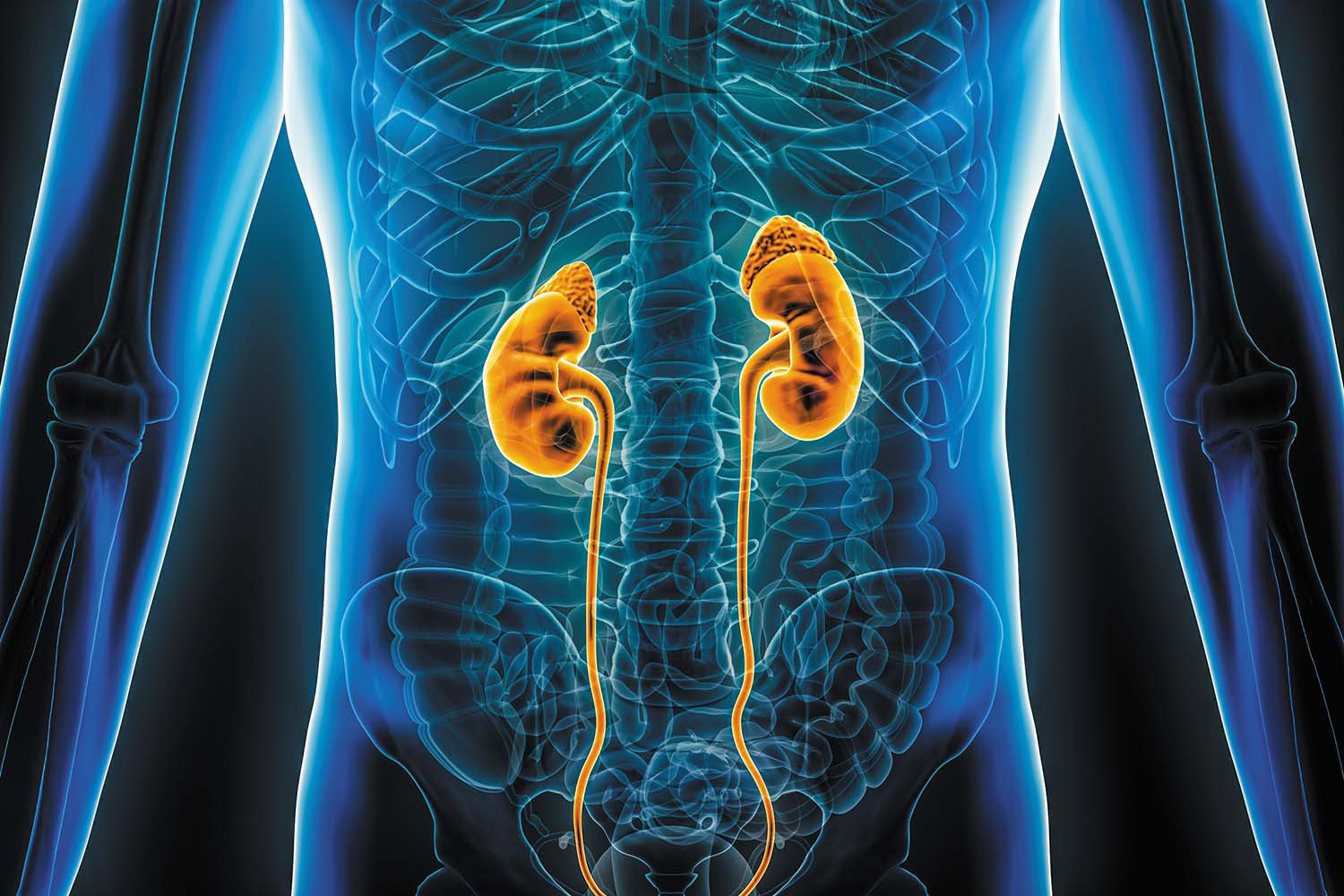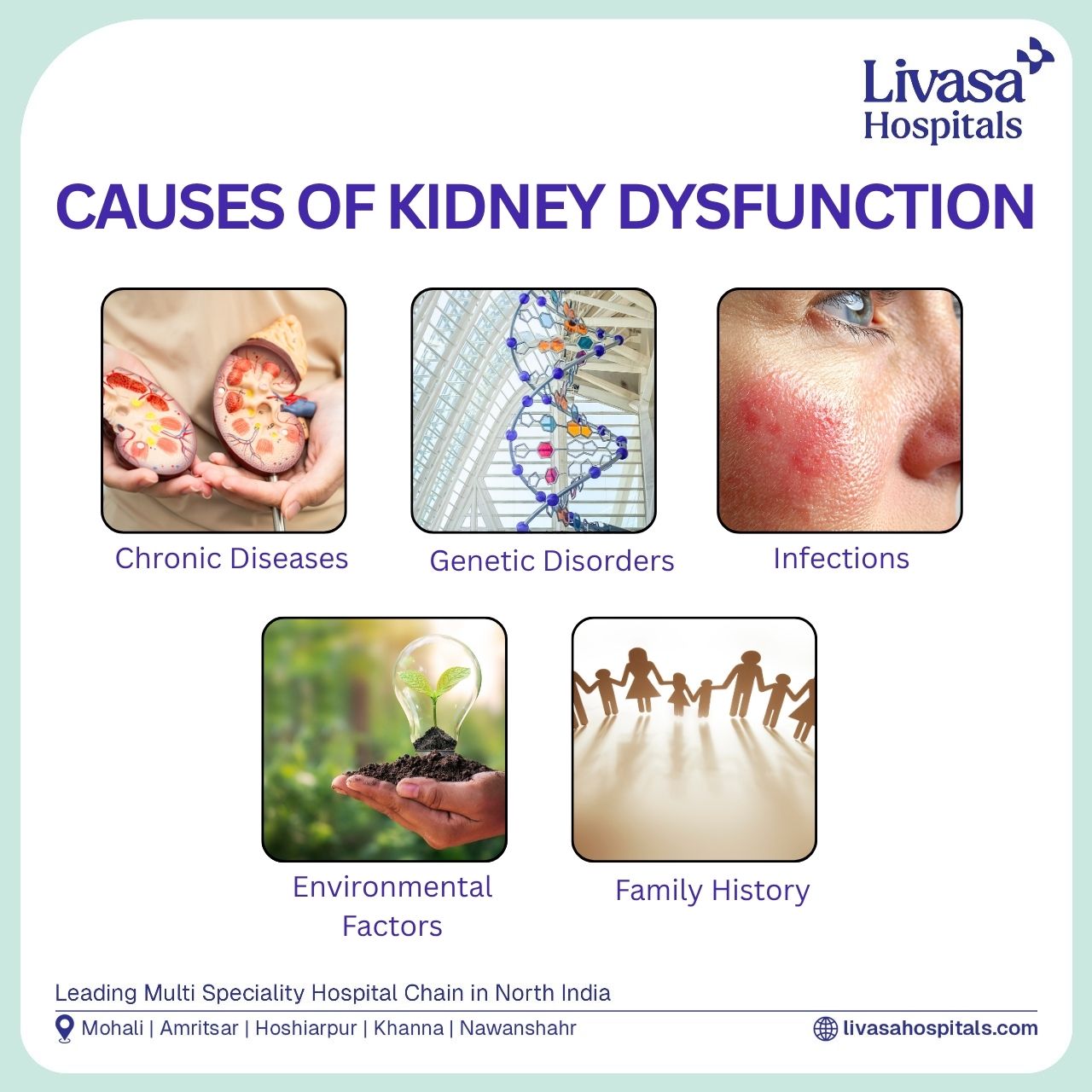03 Feb 2026
Rhinoplasty Revision Surgery in Mohali: Cost When Your First Nose Job Fails


Dr. Navjot Kaur
22 Jun 2025
Call +91 80788 80788 to request an appointment.
Kidney function tests are essential diagnostic tools that help assess the health and performance of the kidneys. At Livasa Hospitals Mohali, we prioritize kidney health, offering comprehensive RFT (Renal Function Tests) and GFR (Glomerular Filtration Rate) testing services. The kidneys play a crucial role in filtering waste products, regulating electrolyte balance, and maintaining overall bodily functions. Understanding kidney function is paramount, especially for those at risk of kidney failure or chronic kidney disease (CKD).
This blog explores the significance of kidney function tests in detail, discussing how RFT and GFR testing can provide crucial insights into renal health, diagnose potential issues, and guide treatment decisions effectively. It also emphasizes the importance of early detection and proactive healthcare management in kidney health, particularly for residents of Mohali and surrounding areas in Punjab.
The Renal Function Test (RFT) is a blood and urine test that provides essential information about kidney health. It evaluates different parameters, including levels of creatinine, urea, electrolytes, and other substances to gauge how effectively the kidneys are filtering blood and excreting waste.
An RFT typically includes the following components:
These tests collectively provide a comprehensive view of kidney function, assisting healthcare providers in diagnosing conditions such as chronic kidney disease, acute kidney injury, and other renal complications.
The Glomerular Filtration Rate (GFR) is a critical measure of how well the kidneys filter blood. It estimates the amount of blood that passes through the glomeruli—tiny structures in the kidneys responsible for filtering waste—every minute. The GFR result is expressed in milliliters per minute (mL/min) and is a vital parameter for evaluating kidney function.
GFR can be calculated using serum creatinine levels, age, sex, and race, or it can be measured using a 24-hour urine collection. Factors that can influence GFR values include:
Understanding GFR is crucial for identifying kidney disease stages—mild (GFR > 90), moderate (GFR 60-89), and severe (GFR < 15)—enabling timely intervention and treatment decisions.
RFT and GFR testing are invaluable tools in the early detection and management of kidney-related disorders. They provide insight into the following:
Additionally, both tests play a vital role in managing patients at risk of developing kidney issues, such as those with diabetes, hypertension, or a family history of kidney disease.
Understanding the underlying causes of kidney dysfunction is essential for effective treatment and prevention. Various factors can contribute to impaired kidney function, including:
Addressing these risk factors through routine testing at Livasa Hospitals can help prevent the progression of kidney disease and promote overall health.
Recognizing the signs and symptoms of kidney disease is crucial for early intervention. While some individuals may experience no symptoms until advanced stages, here are common symptoms that may indicate possible kidney dysfunction:

Anyone experiencing these symptoms should consider scheduling an appointment at Livasa Hospitals Mohali for testing and evaluation.
At Livasa Hospitals Mohali, we ensure that kidney function tests are carried out in a friendly and professional environment. The testing process typically involves:
Our team is committed to making the testing process seamless, ensuring that every patient is well-informed and comfortable during their visit.
Depending on the specific diagnosis and severity of the condition, several treatment options are available for managing kidney disease. At Livasa Hospitals, our nephrology team tailors treatment plans to suit individual needs. Some common treatment options may include:
Early diagnosis through RFT and GFR testing can significantly improve the effectiveness of these treatments and enhance the quality of life.
Kidney disease is a growing concern in India, with increasing prevalence rates. According to recent studies, it is estimated that nearly 200 million individuals in India are affected by some form of kidney disease, including conditions like chronic kidney disease and acute kidney injury. In Punjab, the numbers reflect a similar trend, with lifestyle factors such as diabetes and hypertension contributing to the growing burden of kidney diseases.
Specific statistics include:
Given these alarming statistics, routine testing such as RFT and GFR is crucial for early detection and intervention, contributing to better health outcomes for individuals at risk.
Kidney health is vital for overall well-being, and understanding the importance of kidney function tests like RFT and GFR is crucial for early detection and effective management of kidney diseases. Living in Mohali or anywhere else in Punjab, it is essential to prioritize kidney health through regular testing, especially for individuals with risk factors such as diabetes, hypertension, and family history of kidney disease.
With advanced testing methods available at Livasa Hospitals, we are committed to providing our patients with the highest standard of care. Early diagnosis and personalized treatment plans can significantly improve the quality of life for those facing kidney-related challenges.
Take charge of your health today! Schedule your kidney function tests with us at Livasa Mohali to ensure your kidneys are functioning optimally. Book an appointment today or call +91 80788 80788 for more information.
Rhinoplasty Revision Surgery in Mohali: Cost When Your First Nose Job Fails
Plastic Surgery After Massive Weight Loss: Body Contouring Packages in Mohali
ENT + Cosmetic in Mohali: Septoplasty for Breathing with Cosmetic Rhinoplasty Offers
Livasa Healthcare Group Corporate Office,Phase-8, Industrial Area, Sector 73, Sahibzada Ajit Singh Nagar, Punjab 160071
| Mohali | +91-99888 23456 |
| Amritsar | +91-99887 49494 |
| Hoshiarpur | +91-99883 35353 |
| Nawanshahr | +91-75081 82337 |
| Khanna | +91-98888 05394 |